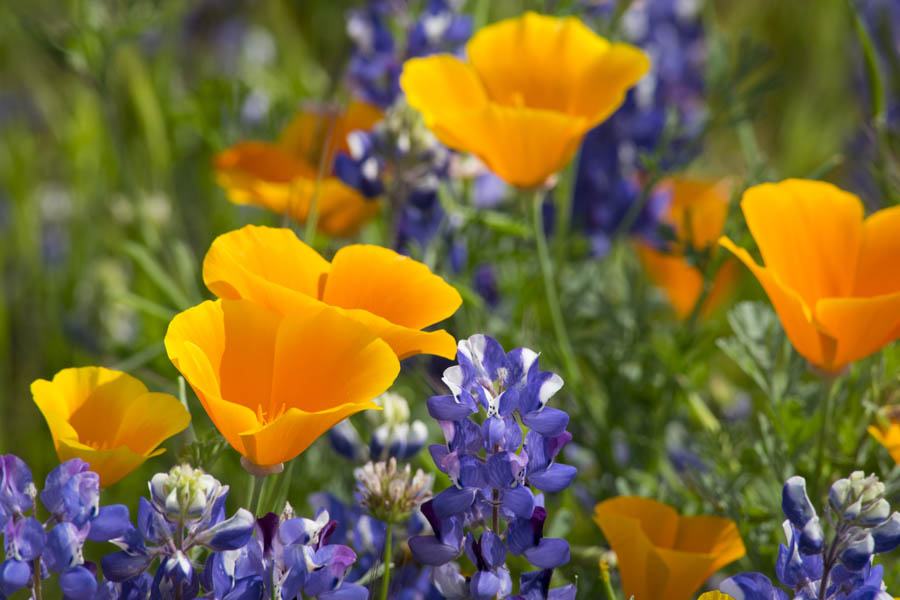New Year's Resolution: Grow California Native and Mediterranean Plants

by Ann Clary and C. Darren Butler
GardenZeus receives commissions for purchases made through links in this post. There is no additional cost to you.
New Year’s Resolution 4: Grow California Native and Mediterranean Plants.
Will plants sold at local gardening centers and nurseries thrive in your garden or landscape? Often they will, but in some cases, climatically inappropriate plants are sold locally. For other plants, the unique conditions in your landscape might be problematic for a plant that will thrive at another location in your neighborhood or city.
This question is even more important when purchasing online or by mail. Many to most ornamentals, fruit trees, berries, and other perennials purchased from outside of California may fail to thrive, bloom, or produce a harvest in our Mediterranean-climate areas.
Native plants from California and other Mediterranean-climate areas can provide a solution. They are adapted to survive and thrive in the many unique climates and micro-climates in California. We often tend to associate California natives with a limited range of drought-tolerant species that are commonly used in home landscapes, many of which are suited to mild, wet winters and warm-to-hot dry summers. However, it’s important to remember that California has thousands of native plant species, including many natives that need frequent watering, high or low elevations, or other specific environmental or climate conditions. Considering California natives narrows your choices to plants that are known to thrive California, but you still need to confirm suitability of native or California-friendly plant species for the location and micro-climate where they will be planted.
California natives offer many advantages to the gardener. Here are a few:
1. Use less water. California and Mediterranean natives are often drought-tolerant, and may need little or no watering once established. Many native species have special adaptations or mechanisms that allow them to survive hot and dry summers, such as going dormant. How much would you save on your water bill if you eliminate all or almost all irrigation for landscape ornamentals?
2. Minimize the use of fertilizers and soil amendments. Many California natives thrive in the moderately alkaline, poor-to-moderately-fertile soils that are common in California. They may be harmed or killed in fertile, microbially active soils with high levels of organic matter that are needed for food gardening and growing many non-native ornamentals. Soils in California’s low-rainfall areas tend to be naturally low in organic matter and may never become loamy or highly fertile without human intervention. Imagine it! California native plants generally do well in the soils here, and they usually don’t need the endless bags of amendments, applications of compost, and other amendments and fertilizers.
3. Reduce pests and diseases. Reduce use of pesticides and chemicals. When grown appropriately and not overwatered or over-fertilized, California native plants often have fewer problems with pests and diseases than non-native ornamentals, and may be easily harmed by pesticides and other chemicals. Native plants and landscapes often tolerate or need few-to-no applications of pesticides and chemicals.
4. Less maintenance. When native species are chosen carefully and are well-suited to their growing environments, many require minimal input from gardeners as compared with non-native ornamentals. Natives accommodate your busy lifestyle by not needing as much from you, and allow you to spend time relaxing or enjoying the beauty of your garden.
5. Ecosystem and biodiversity benefits. Native plants feed and provide habitat for native birds, animals, and insects, including pollinators. Some native shrub and tree species potentially provide benefits to dozens or hundreds of bird and insect species. Home gardeners can help maintain biodiversity in California and provide other ecosystem benefits by growing natives at home.
GardenZeus has customized gardening information by plant and zip code. To get started, enter your zip code here.



